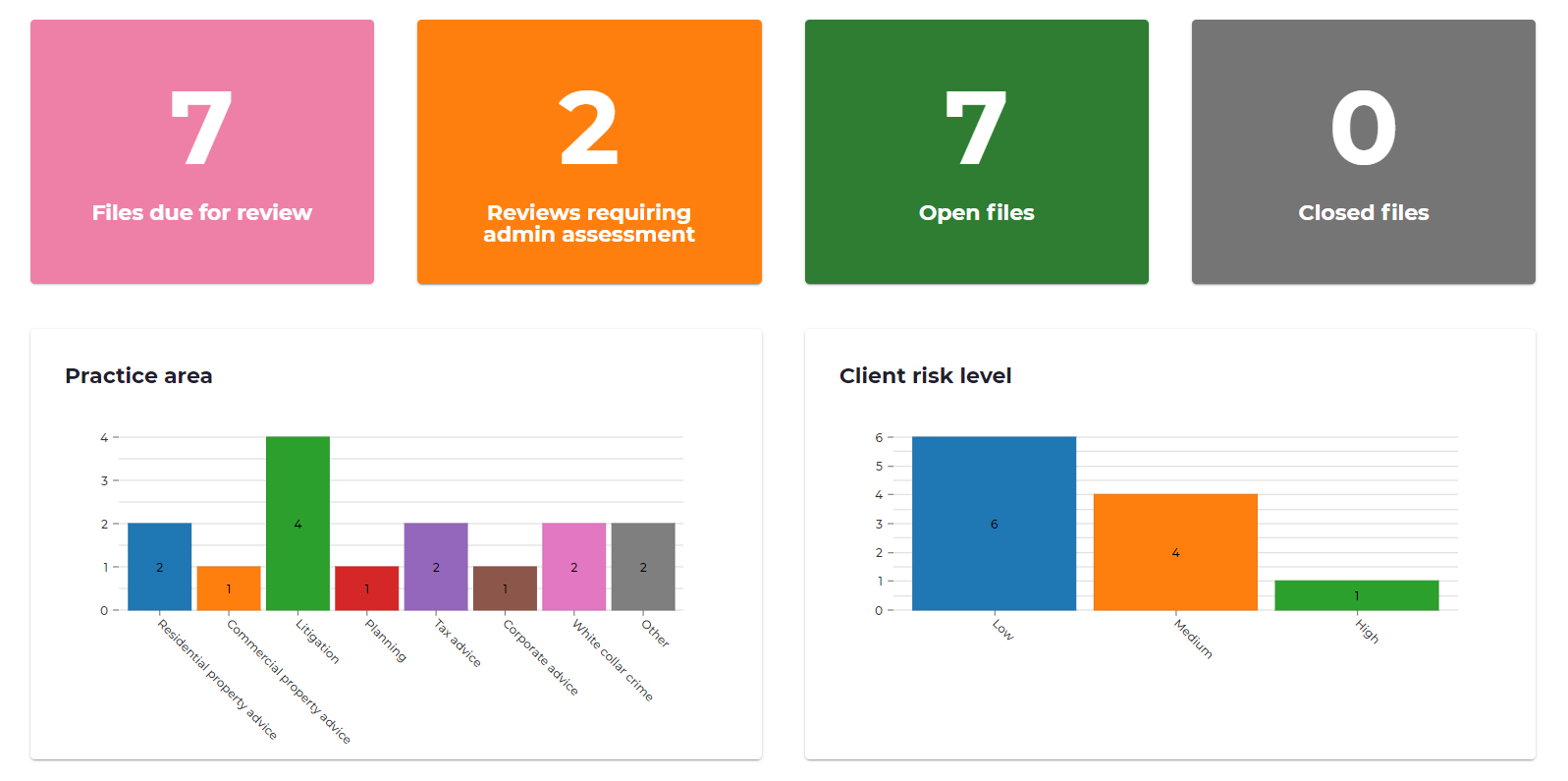What are File Reviews?
File reviews are a core compliance process for many law firms. They are undertaken periodically, as a way of detecting any compliance deficiencies within a client file. Whilst the precise questions involved will vary from firm to firm, a File Review will usually consider:
- General compliance issues, such as whether a conflict of interest search has been undertaken
- Cost-related issues, such as whether an estimate was provided to the client and, if so, whether any invoice issued was within that estimate.
- General management of the client’s matter, and whether progress has been slower than anticipated
- Anti-money laundering (AML) risks, including checking that the client’s identity has been verified
Once compliance issues are identified, the File Review process is also a way to ensure those issues are remedied and to document any action taken.
Do firms need to undertake File Reviews?
There are several reasons why File Reviews are considered an essential compliance procedure for many firms. The first reason is that, whilst SRA-regulated firms aren’t technically required to undertake File Reviews, many firms are required to undertake File Reviews by other regulatory bodies or accreditation schemes. For example, a firm which is part of the Conveyancing Quality Scheme (CQS) must ensure they have a system in place to review files handled by both qualified and non-qualified conveyancers on a regular basis.
The second reason firms should undertake File Reviews – even if they are not technically required to do so – is to ensure their other regulatory requirements are met. This is alluded to in the SRA Code of Conduct for Firms which requires firms to have “effective governance structures, arrangements, systems and controls in place that ensure” compliance with “the SRA’s regulatory arrangements, as well as with other regulatory and legislative requirements”.
Moreover, it is not enough for firms to run their files in a compliant manner. The Code of Conduct provides that they must also “keep and maintain records to demonstrate compliance with… [their] obligations”. A File Review process which monitors risks in the four areas outlined above is one key way to demonstrate such compliance.
The third reason for firms to undertake File Reviews is, aside from any legal or regulatory requirements, it is simply good for the practice as a business. A File Review could include questions relating to client satisfaction, and even incorporate clients’ responses to surveys regarding their perception of how their files were managed. This information may overlap with some of the other questions (if a client is dissatisfied with the way their file was run, this could be because there has been a compliance failure). But even if it does not, client feedback is invaluable in helping businesses grow, and this is no different for law firms than any other business.
How can VinciWorks help?

The Omnitrack SRA Compliance Suite is a well-established tool that assists lawyers with a range of regulatory and legal obligations. Its existing modules include Accounts Rules and Regulatory Breaches Registers, an Undertakings Register, and Professional Indemnity Insurance Trawling. We have also recently launched our File Review workflow, which is now included in the SRA Compliance Suite.
There are many firms that still use spreadsheets or manual forms to complete their File Reviews. But there are a number of benefits to switching to Omnitrack:
- The flagging feature enables admins to focus on remedying problematic submissions, rather than reviewing each field in each form. Without reviewing an entire workflow, admins are instantly presented with the compliance deficiencies on a relevant file, as well as the steps taken (if any) to remedy them.
- Using automation, submissions can change status after a certain period of time (e.g. from “Current Files” to “Review Due”). As the form is fully customisable, you can also choose the names of the statuses or set rules for the frequency of reviews. Rules can be based on time, the answers to certain questions (e.g. client risk level) or both.
- Reminders ensure staff undertake their initial File Reviews when needed. Reminders can also be set for fee earners or compliance teams to undertake corrective action within a certain period of time.
- Thanks to Omnitrack’s conditional logic, users are only asked questions that are relevant to the area of law involved in the file being reviewed.
- With the graphical dashboard admins can spot trends across each department, or the entire firm, seeing the most common items which ‘fail’ during File Reviews. This information can, in turn, be used to help staff with any training needs they may have.
Contact us now to learn more or book a demo.








